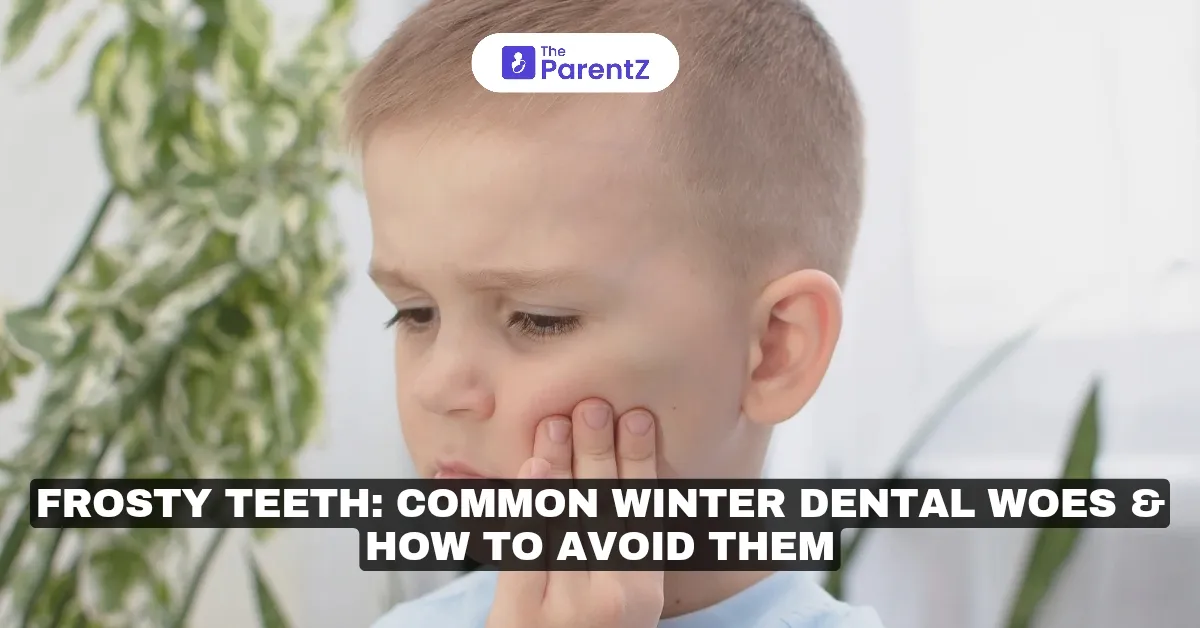What Are Frosty Teeth?
Frosty teeth, or winter tooth sensitivity, refers to the increased discomfort and pain experienced in the teeth due to cold weather. During winter, exposure to cold air and temperature fluctuations can trigger sharp pain or tingling sensations in the teeth, especially when consuming hot or cold foods and beverages.
This condition is common among individuals with sensitive teeth, weakened enamel, or underlying dental issues. If left unchecked, frosty teeth can lead to severe discomfort and even long-term dental problems.
Causes of Frosty Teeth
Several factors contribute to winter-related tooth sensitivity:
1. Cold Air Exposure
Cold temperatures can cause the nerves inside the teeth to contract and expand, leading to sensitivity and pain.
2. Weakened Enamel
Tooth enamel protects the underlying dentin and nerves. However, acidic foods, excessive brushing, or poor oral hygiene can wear down enamel, making teeth more susceptible to temperature changes.
3. Receding Gums
Gum recession exposes the tooth roots, which lack protective enamel, making them highly sensitive to cold air and food.
4. Tooth Grinding (Bruxism)
Grinding your teeth, especially during sleep, wears down enamel and increases tooth sensitivity.
5. Cracked or Chipped Teeth
Cold air and temperature changes can cause cracked teeth to expand and contract, intensifying pain and sensitivity.
6. Cavities and Tooth Decay
Dental caries create holes in the teeth, exposing sensitive nerves to cold air and food, leading to discomfort.
7. Sinus Infections
Winter is peak season for colds and sinus infections. Inflamed sinuses put pressure on the upper teeth, leading to sensitivity and pain.
How to Prevent Frosty Teeth
1. Use a Fluoride Toothpaste for Sensitivity
Fluoride strengthens enamel and reduces sensitivity. Opt for a desensitizing toothpaste with potassium nitrate or stannous fluoride.
2. Brush and Floss Gently
Use a soft-bristled toothbrush and gentle circular motions to prevent enamel erosion and gum recession. Avoid brushing immediately after consuming acidic foods or drinks.
3. Wear a Mouthguard
If you grind your teeth at night, a custom-fitted mouthguard can prevent enamel erosion and sensitivity.
4. Stay Hydrated
Dry mouth increases sensitivity. Drink plenty of water to keep your mouth moist and wash away harmful bacteria.
5. Limit Acidic and Sugary Foods
Citrus fruits, soda, and sugary snacks weaken enamel. Rinse your mouth with water after consuming these foods.
6. Breathe Through Your Nose
Avoid exposing your teeth to cold air by breathing through your nose instead of your mouth when outside.
7. Visit Your Dentist Regularly
Routine dental checkups help detect early signs of decay, gum recession, or other dental issues before they worsen in winter.
Symptoms of Frosty Teeth
• Sharp pain or tingling sensation in the teeth
• Increased sensitivity to hot or cold foods and drinks
• Pain while breathing in cold air
• Discomfort when consuming sugary foods
• A dull ache or throbbing sensation in the teeth
If sensitivity persists despite preventive measures, consult a dentist for professional treatment.
What to Do If You Have Frosty Teeth?
1. Use a Desensitizing Toothpaste
These toothpastes block nerve signals, reducing pain and discomfort over time.
2. Rinse with Fluoride Mouthwash
Fluoride strengthens enamel and helps reduce sensitivity.
3. Avoid Extreme Temperatures
Refrain from consuming very hot or cold foods in quick succession, as temperature shocks can worsen sensitivity.
4. Apply a Warm Compress
If your teeth hurt due to sinus pressure, applying a warm compress to the affected area can relieve discomfort.
5. Schedule a Dental Checkup
If pain persists, your dentist may recommend fluoride treatments, bonding, or gum grafting for severe cases.
Home Remedies for Frosty Teeth
1. Saltwater Rinse
A warm saltwater rinse helps reduce inflammation and sensitivity. Mix half a teaspoon of salt in warm water and rinse twice daily.
2. Clove Oil
Clove oil has natural analgesic properties. Apply a small amount to the sensitive area using a cotton swab.
3. Honey and Warm Water
Honey has antibacterial properties that help heal gums and reduce sensitivity. Mix honey in warm water and use it as a rinse.
4. Green Tea Rinse
Green tea strengthens teeth and reduces inflammation. Brew green tea, let it cool, and use it as a mouth rinse twice a day.
5. Coconut Oil Pulling
Swishing a tablespoon of coconut oil in your mouth for 10–15 minutes can help reduce bacteria and strengthen enamel.
6. Garlic Paste
Garlic contains allicin, a natural antibacterial agent. Crush a garlic clove, mix with salt, and apply it to the sensitive area for relief.
Final Thoughts
Frosty teeth are a common winter woe, but with proper oral care, preventive measures, and home remedies, you can manage and prevent sensitivity. If symptoms persist or worsen, consult a dentist for professional treatment. Keeping your teeth healthy during winter ensures a pain-free, confident smile all season long!






Be the first one to comment on this story.